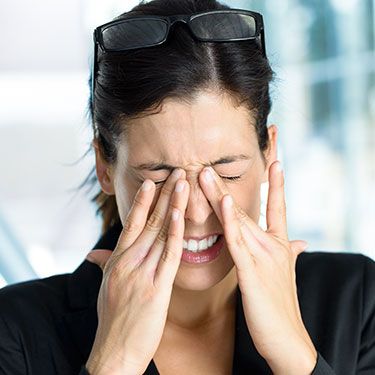

Why do I have dry eye?
Dry Eye occurs when there are not enough tears produced to lubricate your eyes and / or not enough oil to stop the tears from evaporating too quickly. Not blinking enough can also contribute to the problem.
The causes of dry eye can vary and may include a number of the following:
Increasing age – as we age our lower lids may often sag which means that the oil producing glands aren’t able to deliver oil effectively to the surface of the eye
Menopause – changes in hormone levels mean that women are at greater risk of dry eye than men due to thickening of the oil in the Meibomian glands causing them to become blocked
Computer Use – often when we stare at a screen we tend not to blink as often or as fully as we should, this causes the tears to evaporate and increased risk of dry eye symptoms
Medications – antidepressants and antihistamines, diuretics and beta blockers can cause meibomian glands to block or aqueous tear production to be reduced (or both).
Environment – dry windy conditions, air conditioning, fans and heaters can all affect the tear film leading to dry eye symptoms
Contact lenses – these may remove moisture from the tear film and irritate the eye
Medical conditions – there are certain systemic diseases that can cause dry eye, these include rheumatoid arthritis, thyroid disease, diabetes and lupus. Sjogrens syndrome is an autoimmune condition which causes dry eye and dry mouth because the body attacks the salivary glands and lacrimal glands reducing the production of saliva and tears.
Trauma – injuries to the front of the eye or the eye lid may affect the way tears are spread across the eye surface
Previous eye surgery – it is not uncommon for eyes to be dry for a number of months following cataract surgery
Eye lid problems – incomplete closure of the eyelids when you blink or sleep or due to other problems such as Bell’s palsy or stroke may affect the tear film
Blepharitis – is an inflammation along the eye lid margins and is normally associated with an overgrowth of normal skin bacteria that naturally live along the lid margins. Over time the bacteria can multiply and cause a toxic biofilm which can encourage demodex mites to live on the eyelids. This will also cause inflammation of the Meibomian glands.
 07 4635 8844
07 4635 8844